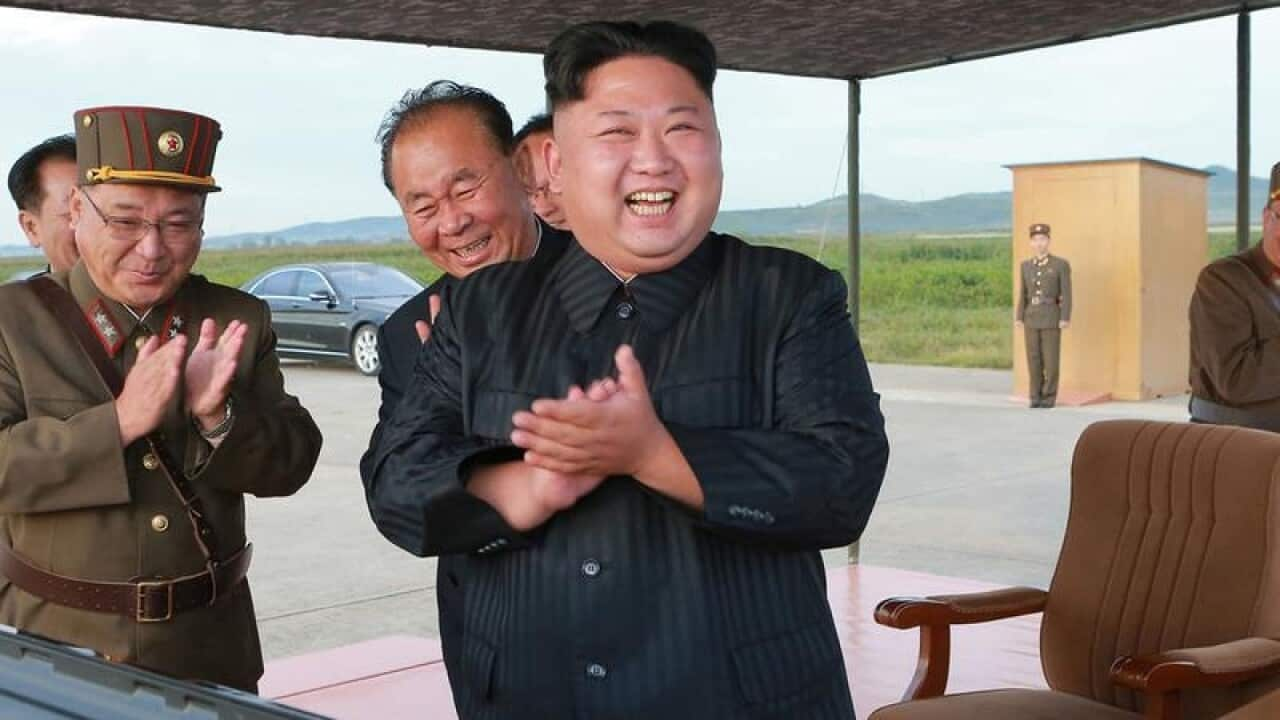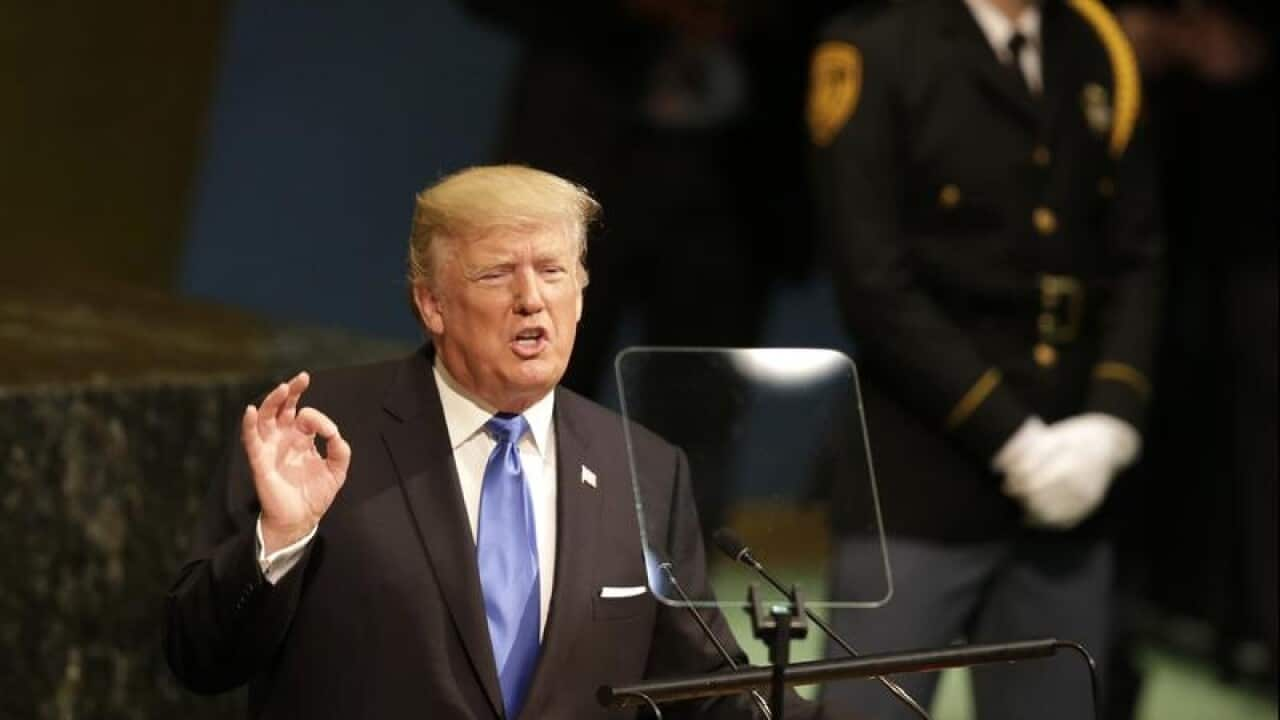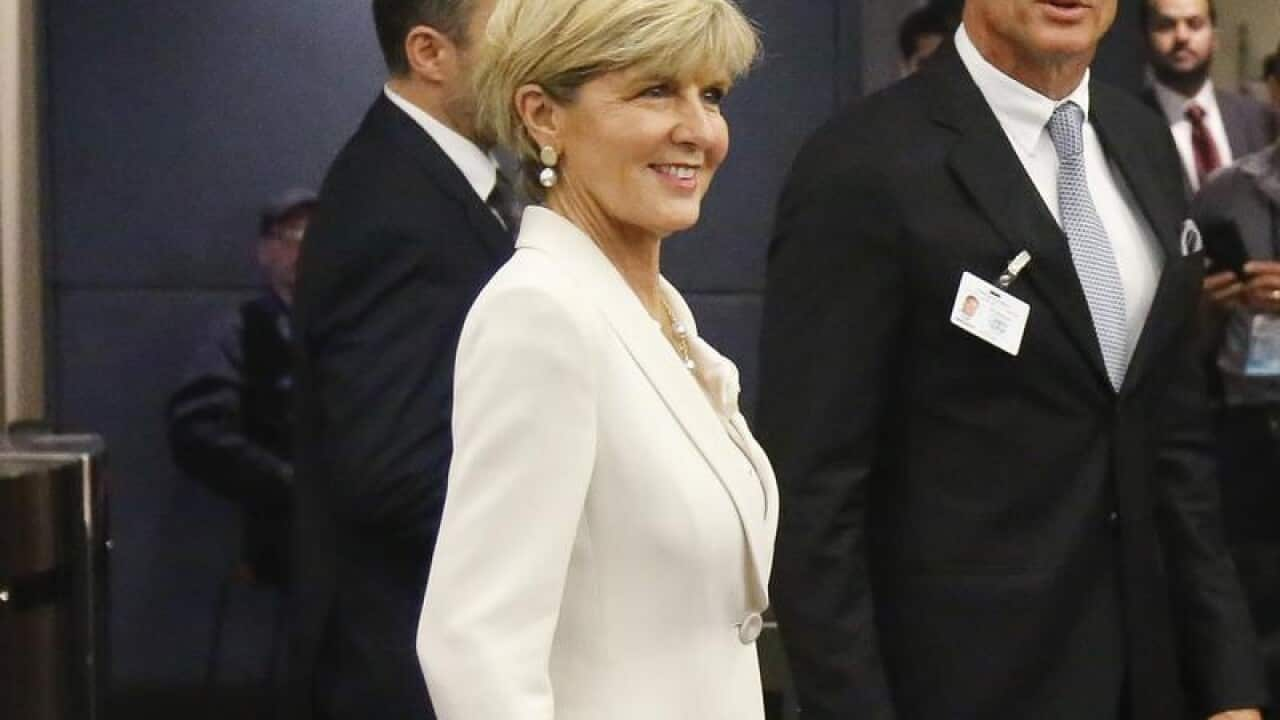US President Donald Trump has escalated his stand-off with North Korea over its nuclear challenge, threatening to "totally destroy" the country of 26 million people and mocking its leader, Kim Jong-Un, as a "rocket man."
In a hard-edged speech to the United Nations General Assembly on Tuesday, Trump offered a grim portrait of a world in peril, adopted a more confrontational approach to solving global challenges from Iran to Venezuela, and gave an unabashed defence of US sovereignty.
"The United States has great strength and patience, but if it is forced to defend itself or its allies, we will have no choice but to totally destroy North Korea," Trump told the 193-member world body, sticking closely to a script.
As loud, startled murmurs filled the hall, Trump described Kim in an acid tone, saying, "Rocket man is on a suicide mission for himself and his regime."
His remarks rattled world leaders gathered in the green-marbled UN General Assembly hall, where minutes earlier UN Secretary-General Antonio Guterres appealed for statesmanship, saying: "We must not sleepwalk our way into war."
Trump's most direct military threat to attack North Korea, in his debut appearance at the General Assembly, was his latest expression of concern about Pyongyang's repeated launching of ballistic missiles over Japan and underground nuclear tests.
His advisers say he is concerned about North Korea's advances in missile technology and the few means available for a peaceful response without China's help.
Inside the hall, one man in the audience covered his face with his hands shortly after Trump made his "totally destroy" comment. Swedish Foreign Minister Margot Wallstrom crossed her arms.
Trump did not back down, instead later tweeting out the line in his speech vowing to destroy North Korea if needed.
Related reading

PM downplays Kim Jong-un 'suicide mission'
A junior North Korean diplomat sat in the delegation's front-row seat for Trump's speech, the North Korean UN mission said. The mission did not immediately respond to a request for comment.
In Germany, Chancellor Angela Merkel said she would do everything in her power to ensure a diplomatic solution. "Anything else would lead to disaster," she said.
Trump's sabre-rattling rhetoric, with the bare-knuckled style he used to win election, was in contrast to the comments of some of his own Cabinet members who have stated a preference for a diplomatic solution.
In a thunderous 41-minute speech, Trump also took aim at Iran's nuclear ambitions and regional influence, Venezuela's collapsing democracy, the threat of Islamist extremists and the Cuban government. "Major portions of the world are in conflict and some in fact are going to hell," he said.
His speech recalled the fiery nationalist language of his inaugural address when he pledged to end what he called an "American carnage" of rusted factories and crime.
Australian Foreign Minister Julie Bishop said she spoke with Mr Trump and US Ambassador to the UN Nikki Haley at a UN luncheon in New York on Tuesday.
It came soon after Mr Trump addressed the UN General Assembly.
"I spoke to the president about his speech and his comments on North Korea," Ms Bishop told reporters.
"We had a rather detailed discussion on what options are available to the international community and what is Kim Jong-Un's end game."
Australia hopes to win a seat on the UN Human Rights Council for 2018-20.
"I certainly didn't raise any concerns with the president," Ms Bishop said.
"We spoke more generally about the challenges with North Korea."
The foreign minister said the discussion with the president was "generally about our support for the collective strategy of diplomatic, political, and economic pressure on North Korea".
"The president's speech was about calling out this illegal behaviour and calling on the international community to continue to condemn North Korea and ensure sufficient pressure is put on North Korea so it returns to the negotiating table," she said.















